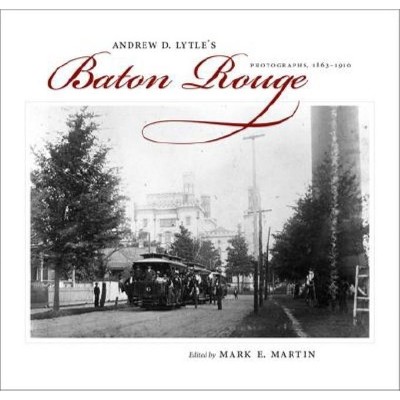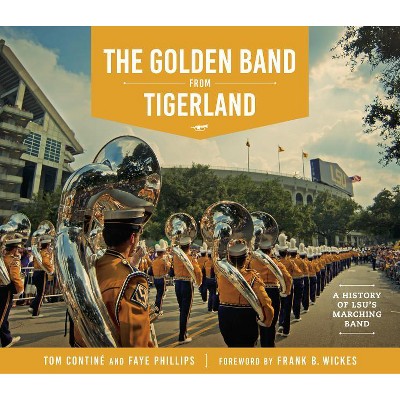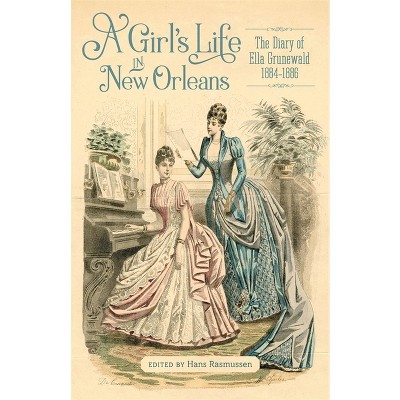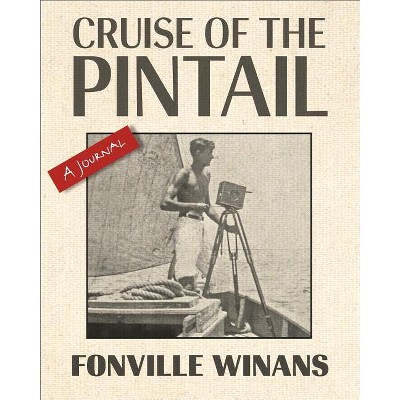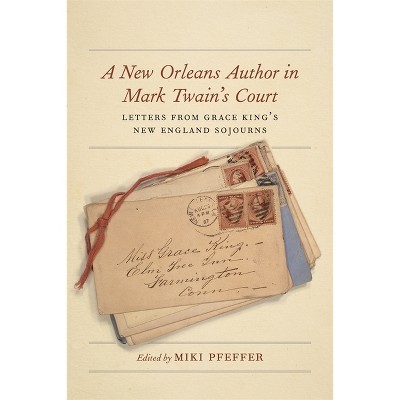Touring the Antebellum South with an English Opera Company - (Hill Collection: Holdings of the Lsu Libraries) Annotated by Michael Burden

About this item
Highlights
- The diary of Anton Reiff Jr. (c. 1830-1916) is one of only a handful of primary sources to offer a firsthand account of antebellum riverboat travel in the American South.
- About the Author: Michael Burden is professor of opera at the University of Oxford and dean and tutor in music at New College.
- 216 Pages
- History, United States
- Series Name: Hill Collection: Holdings of the Lsu Libraries
Description
About the Book
"The diary of Anton Reiff, Jr. (1840-1916) is one of only a handful of primary sources to offer insights into the difficulties faced by a traveling opera company in nineteenth-century America. Reiff, who went on to have a long and successful musical career, had been working at the Bowery Theatre in New York before being hired to serve as musical director and conductor by the Pyne & Harrison Opera Troupe, a company run by the English sisters Susan and Louisa Pyne and their business partner, the tenor William Harrison. The grueling tour began in November 1855 in Boston and then proceeded to New York, Philadelphia, Baltimore, Pittsburgh, and Cincinnati where, after a three-week engagement, the company boarded a paddle steamer bound for New Orleans. It was at that point that Reiff started to keep his diary. Diligently transcribed and annotated by Michael Burden, Reiff's diary presents an extraordinarily rare view of life with a foreign opera company aboard a nineteenth-century steamboat as it made its way down the Mississippi River. Surprisingly, Reiff comments little on the Pyne-Harrison performances themselves, although he does visit the theatre in the river towns, including that in New Orleans, where he saw both the French opera and an evening's worth of entertainment at the Gaiety. Instead, Reiff focused most of his observations on other passengers, on the mechanics of the journey, on the landscape, and on the river towns and their residents, including those enslaved, whom he encountered whenever the boat tied up. Running throughout the journal is a thread of anxiety, for apart from the typical dangers of a river journey, the winter of 1855-1856 was one of the coldest of the century, and the steamer had many difficulties with river ice. Several historians have used Reiff's journal as source material, but until now the entire text has only been available in its original state in the diary, which is archived in LSU's special collections in Hill Memorial Library. As a primary source, the published journal will have broad appeal to historians and readers interested in antebellum riverboat travel, high-brow entertainment, and the people and places along the Mississippi River"--Book Synopsis
The diary of Anton Reiff Jr. (c. 1830-1916) is one of only a handful of primary sources to offer a firsthand account of antebellum riverboat travel in the American South. The Pyne and Harrison Opera Troupe, a company run by English sisters Susan and Louisa Pyne and their business partner, tenor William Harrison, hired Reiff, then freelancing in New York, to serve as musical director and conductor for the company's American itinerary. The grueling tour began in November 1855 in Boston and then proceeded to New York, Philadelphia, Baltimore, Pittsburgh, and Cincinnati, where, after a three-week engagement, the company boarded a paddle steamer bound for New Orleans. It was at that point that Reiff started to keep his diary.
Diligently transcribed and annotated by Michael Burden, Reiff's diary presents an extraordinarily rare view of life with a foreign opera company as it traveled the country by river and rail. Surprisingly, Reiff comments little on the Pyne-Harrison performances themselves, although he does visit the theaters in the river towns, including New Orleans, where he spends evenings both at the French Opera and at the Gaiety. Instead, Reiff focuses his attention on other passengers, on the mechanics of the journey, on the landscape, and on events he encounters, including the 1856 Mardi Gras and the unveiling of the statue of Andrew Jackson in New Orleans's Jackson Square. Reiff is clearly captivated by the river towns and their residents, including the enslaved, whom he encountered whenever the boat tied up. Running throughout the journal is a thread of anxiety, for, apart from the typical dangers of a river trip, the winter of 1855-1856 was one of the coldest of the century, and the steamer had difficulties with river ice. Historians have used Reiff's journal as source material, but until now the entire text, which is archived in Louisiana State University's Special Collections in Hill Memorial Library, has only been available in its original state. As a primary source, the published journal will have broad appeal to historians and other readers interested in antebellum riverboat travel, highbrow entertainment, and the people and places of the South.Review Quotes
Anton Reiff's journal is a captivating trip through the Deep South in 1856. Editor Michael Burden has done a wonderful job helping us understand the complexity of the antebellum South.--Robert Gudmestad, author of "Steamboats and the Rise of the Cotton Kingdom"
Readers will find themselves fascinated by Anton Reiff's account of the cities, slaves and slaveholders, steamboat accommodations, races and near disasters, and the sometimes eccentric, even murderous characters he encountered.--Paul F. Paskoff, author of "Troubled Waters: Steamboat Disasters, River Improvements, and American Public Policy, 1821-1860"
About the Author
Michael Burden is professor of opera at the University of Oxford and dean and tutor in music at New College.





